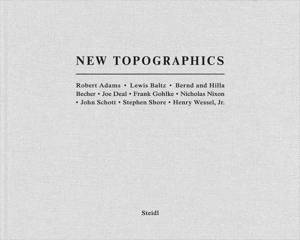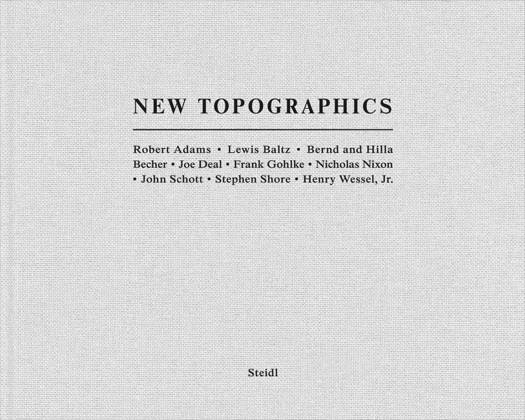
- Retrait gratuit dans votre magasin Club
- 7.000.000 titres dans notre catalogue
- Payer en toute sécurité
- Toujours un magasin près de chez vous
- Retrait gratuit dans votre magasin Club
- 7.000.0000 titres dans notre catalogue
- Payer en toute sécurité
- Toujours un magasin près de chez vous
Description
Revisiting the exhibition that defined a generation of photography, through a meticulous reimagining of the original catalog
In his introduction to the exhibition catalog for New Topographics: Photographs of a Man-Altered Landscape, held in 1975 at the George Eastman House International Museum of Photography in Rochester, NY, curator William Jenkins described the black-and-white images he selected as "reduced to an essentially topographic state, conveying substantial amounts of information but eschewing entirely the aspects of beauty, emotion and opinion." The exhibition brought together 10 photographers: Robert Adams, Lewis Baltz, Bernd and Hilla Becher, Joe Deal, Frank Gohlke, Nicholas Nixon, John Schott, Stephen Shore and Henry Wessel Jr.
Signaling the emergence of a new approach to landscape, the show effectively gave a name to a movement. Even today, the concept of "New Topographics" is used to characterize the work of artists not yet born when the exhibition was held. "New Topographics" has since come to be understood as marking a paradigm shift. The show occurred just as photography took its place within the contemporary art world. Arguably the last traditionally photographic style, "New Topographics" was also the first photoconceptual style.
In this vital reassessment of the exhibition that started it all, curator Britt Salvesen reintroduces the work of these 10 photographers and traces the legacy of their work over the last 50 years. Illustrated with selected works from the 1975 exhibition, installation views and contextual comparisons, the book also includes an illustrated checklist of the show and an extensive bibliography.
Spécifications
Parties prenantes
- Auteur(s) :
- Editeur:
Contenu
- Nombre de pages :
- 304
- Langue:
- Anglais
Caractéristiques
- EAN:
- 9783969993408
- Date de parution :
- 29-04-25
- Format:
- Livre relié
- Format numérique:
- Genaaid
- Dimensions :
- 298 mm x 241 mm

Les avis
Nous publions uniquement les avis qui respectent les conditions requises. Consultez nos conditions pour les avis.






